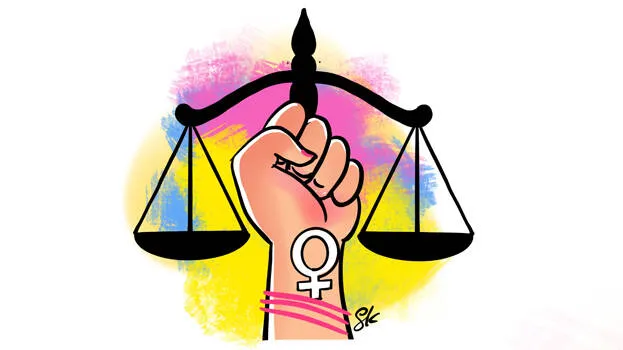

The property of parents belongs to their children. It is a just right that it should be divided equally between men and women. Sadly, that is not the case in practical life. Children who soft-soap their parents to acquire more property and who refuse even what they deserve because they are not interested in fighting or arguing live in the same society. Property cannot be divided into equal pieces like cutting a cake. Especially in the case of those who own more land. There can be fluctuations. It cannot be said that a son or daughter has acquired more property just because they have acquired more land. A small piece of land obtained in a city will be more valuable than a large piece of land obtained in a cheaper place in a village!
In the old male-centric era, the law was that girls did not have to be given anything when their parents' property was divided as the cost of getting a girl married and other expenses, as well as the value of gold and other movable goods, were taken into account. This method is not very relevant in modern times. First, the number of children and the size of the property to be divided are small. Moreover, most parents today distribute property fairly, regardless of whether it is a boy or a girl. However, it will be complicated to resolve a dispute if there is no clear law on this. Previously, under the Christian Succession Act, daughters did not have rights to property and land. This changed after the Mary Roy case.
The High Court's verdict that daughters have equal rights in the ancestral property of Hindus is commendable. This verdict has come into effect from December 20, 2004. It does not apply to Partition Deeds and other deeds that took place before that. The High Court has clarified that Sections 3 and 4 of the Kerala Joint Hindu Family System (Abolition) Act of 1975, which were an obstacle in Kerala to the implementation of this law brought by the Central Government, will not remain in force. Justice S. Easwaran's landmark verdict allowed the appeal filed by Kozhikode native NP Rajani and her sisters seeking equal rights in family property. The legal battle was triggered by the fact that the properties were given only to the petitioners' brother while the father was still alive. With this verdict, the ambiguities and contradictory provisions related to this will be eliminated.
Section 3 of the Kerala State Act states that no one can claim ownership of Hindu undivided property. However, Section 4 states that this property should be divided among all the residents of the ancestral house. Due to this, there was a situation where married women could not claim ownership of the property. Although Section 6 of the Central Amendment Act later provided that ownership of property can be claimed by birth, the contrary provisions in the Kerala Act stood in the way. The High Court has clarified this. The order also said that from now on, the order issued by the Supreme Court in the Vineetha Sharma case will be applicable in such cases. In other words, the High Court has pointed out that it is only logical for parents to treat their children as one and distribute the property without discrimination.